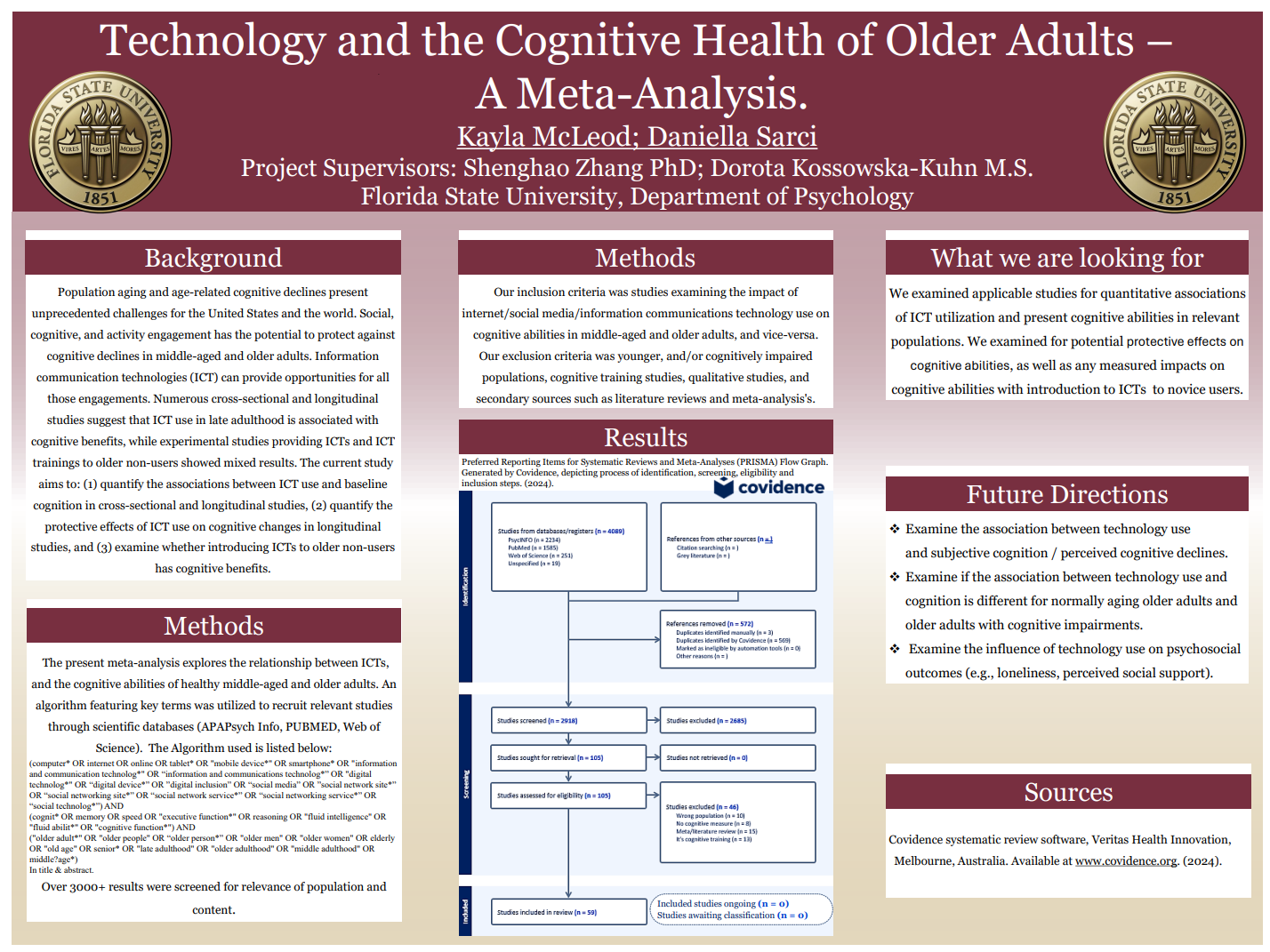Research Symposium
24th annual Undergraduate Research Symposium, April 3, 2024
Kayla McLeod Poster Session 2: 10:45 am - 11:45 am/338
BIO
My name is Kayla McLeod, and I am from Clermont, Florida. Psychology had always interested me, and learning the science behind major ideas and theories interests me more. The opportunity to be apart of this research has taught me that areas of interest for me include development and aging, as well as age related disorders. After my bachelor's I'd like to pursue a Master's degree in Clinical Psychology.
Technology and the Cognitive Health of Older Adults - A Meta-Analysis.
Authors: Kayla McLeod, Dorota Kossowska-KuhnStudent Major: Psychology
Mentor: Dorota Kossowska-Kuhn
Mentor's Department: Psychology Mentor's College: Arts and Sciences Co-Presenters: Daniella Sarci
Abstract
Background: Population aging and age-related cognitive declines present unprecedented challenges for the United States and the world. Social, cognitive, and activity engagement has the potential to protect against cognitive declines in middle-aged and older adults. Information communication technologies (ICT) can provide opportunities for all those engagements. Numerous cross-sectional and longitudinal studies suggest that ICT use in late adulthood is associated with cognitive benefits, while experimental studies providing ICTs and ICT trainings to older non-users showed mixed results. The current study aims to: (1) quantify the associations between ICT use and baseline cognition in cross-sectional and longitudinal studies, (2) quantify the protective effects of ICT use on cognitive changes in longitudinal studies, and (3) examine whether introducing ICTs to older non-users has cognitive benefits.
Methods: The present meta-analysis explores the relationship between ICTs, and the cognitive abilities of healthy middle-aged and older adults. An algorithm featuring key terms was utilized to recruit relevant studies through scientific databases. We examined applicable studies for quantitative associations of ICT utilization and present cognitive abilities in relevant populations. As well as potential defensive impacts , and quantitative impacts on cognitive abilities with introduction to ICTs when lacking utilization.
Results: Current data is in the process of extraction across multiple studies, relevant to the dynamic between ICTs and cognition in older populations.
Conclusion: Given the present meta-analysis, it is evident that the relationship between cognition and ICTs involves multiple functions of technology. These functions have the potential to be narrowed down in future research.
Keywords: computer, technology, cognitive function, older adult

